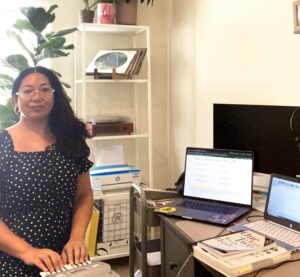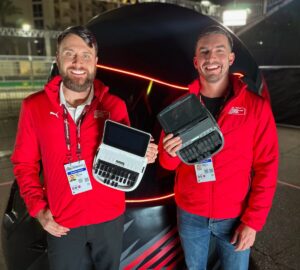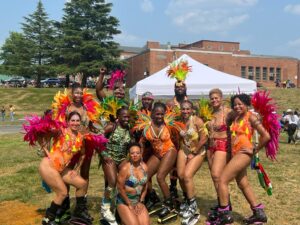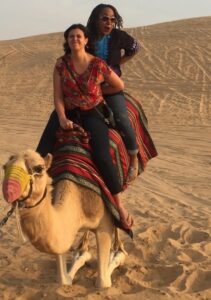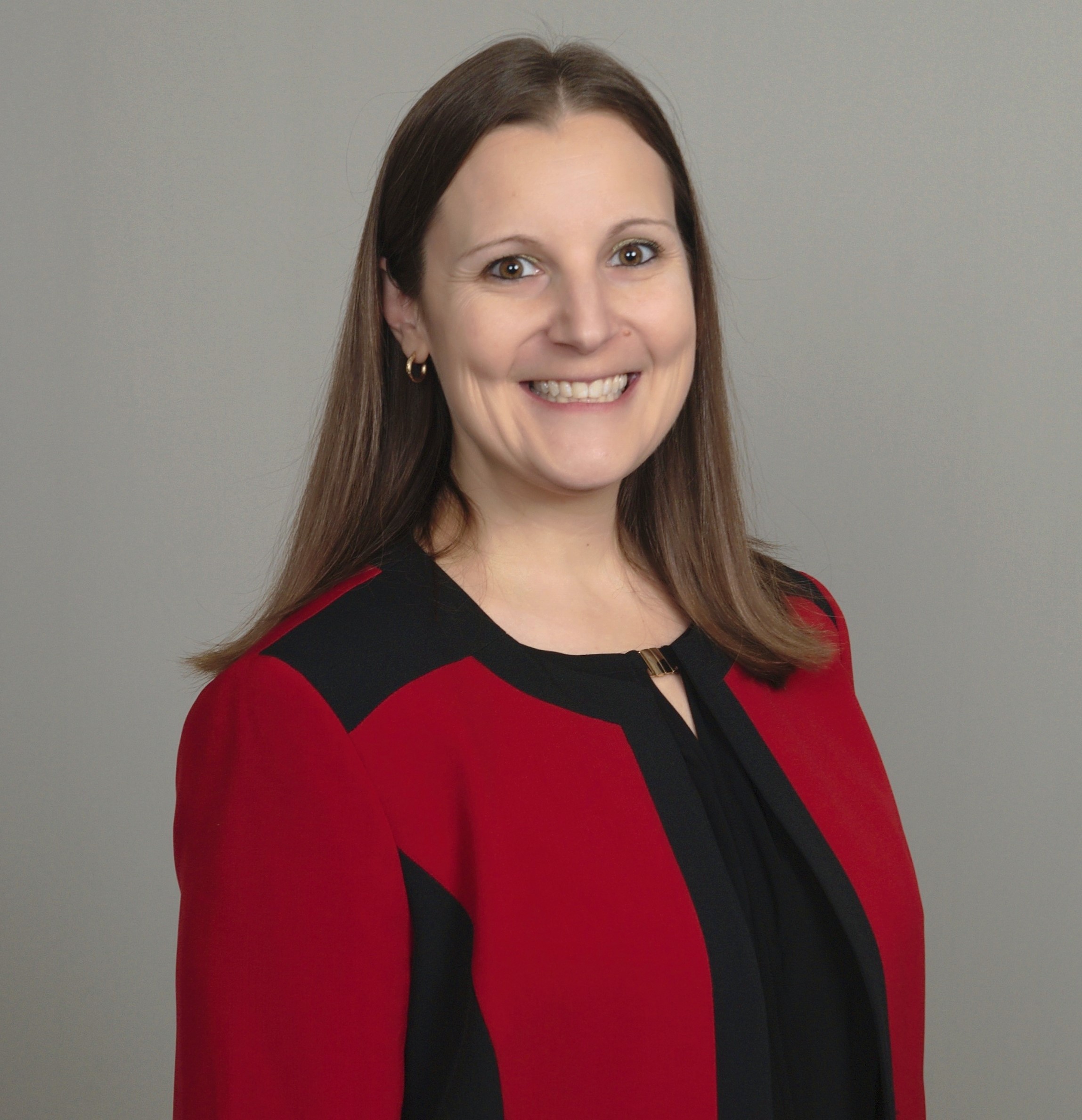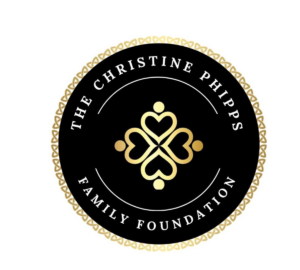By Lauren Lawrence
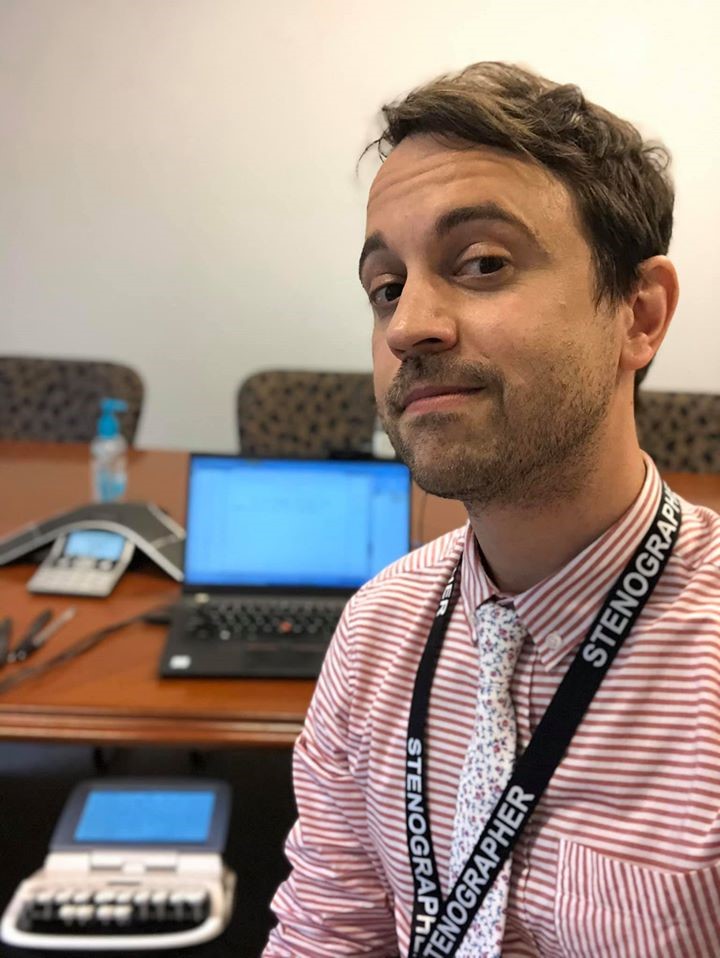
Douglas Armstrong, RPR, is a freelance court reporter in Seattle, Wash. He is a 2018 graduate of the Green River College court reporting program and is the current chair of the school’s Court Reporting and Captioning Advisory Committee. He loves opera and animals and spends way too much time thinking about Academy Awards trivia.
JCR | Why did you choose to become a court reporter?
DA | When my job of managing 200 employees in a pair of hair salons was eliminated without notice or ceremony after seven years, I didn’t know what I’d do next. I happened to read an article about the need for court reporters and the connection many reporters had to playing musical instruments, particularly piano, which I had played my whole life. I was a music major the first time I went to college. I contacted Green River College, met with the wonderful Lori Rapozo and Sidney Weldele-Wallace who sold me on the profession, and was enrolled within days. The rest is history.
JCR | Do you have any advice for reporting students?
DA | Hang on and then keep hanging on. Quitting is not an option. You can always switch to decaf after you graduate. Failed tests do not mean that you’re not getting better all the time. Start and end each practice session with something you know you’re good at. Associate with students and reporters who love what they’re doing and want to succeed; stay away from those who complain, make excuses, or demotivate others. Practice sometimes with distractions, like a rock band in the background (it happens in the real world) or writing to material where the speaker is yelling or crying (it definitely happens). Approach adversity as an opportunity to improve yourself and your skills and not something to fear. Picture yourself laughing a few years from now at what scares you now. When you think you’ve practiced enough, practice more.
JCR | What’s your “can’t live without” item in your steno bag?
DA | I use public transportation whenever possible and deliberately travel as light as possible. I carry a briefcase-style bag with my Luminex and a backpack holding my lightweight Lenovo ThinkPad and only the essential accessories. A constantly replenished stash of protein bars and vegan jerky have definitely proven to be lifesavers on jobs that go straight through lunch.
JCR | What was life like as a student?
DA | I started school at age 33 and had to work full-time. I managed all aspects of a small, though very busy, vegan grocery store by day and did my online classes, homework, and practice by night. It was by far the most productive period of my life and also the most satisfying. I told myself often that the time would be passing anyway and that the hard work I was putting in was a gift I was able to give my future self. I was right, and there hasn’t been a day since where I haven’t felt immense gratitude for the opportunities opened to me by those years of effort.
JCR | What was your biggest challenge as a new reporter?
DA | Finding and defining my own voice as a reporter was an unexpected challenge. There’s the voice on paper, of making formatting, grammatical, and punctuation decisions where there seem to be as many options as there are reporters. There’s the voice in the deposition, learning to coolly and confidently interact with attorneys and experts to get what I need to do my job with minimal disruption to theirs. There’s the voice as a businessperson, advocating for myself in finding answers to unexpected questions on everything from taxes to software functionality. I’ve definitely found that what is the preferred solution for others doesn’t necessarily have to be the best answer for me, and that’s OK. I’m a perfectionist and I like absolutes, but I have had to learn to be comfortable with ambiguity and flexibility.
JCR | What’s the coolest experience you have had working in the profession?
DA | I’ve been a guest speaker a few times at the law school of a local university on panels where I was the only reporter among several attorneys. Surprisingly, I got the majority of the student questions from folks who were fascinated by our profession and how we work our magic. I also got the chance every reporter dreams of, to tell a room full of future lawyers the dos and don’ts of a great record from our perspective, like thinking a question all the way through before starting and stopping seven times midsentence or not interjecting an “OK” after every three words of a deponent’s answer.
JCR | What do you love about your career?
DA | I love meeting new people every day and hearing about careers, processes, lifestyles, and experiences I might not otherwise be exposed to. I love writing new voices and unfamiliar terms and phrases, as well as the daily challenge of adapting to and anticipating the unique patterns and rhythms of each job. I love watching smart people argue and not having to choose a side. I love working in a prison one day and a surgeon’s office the next. I love the flexibility of a freelance schedule and the editing time at home with my dog and cat. I love the way processing words through my fingers on a funny little machine tickles my brain and that I get paid for that.
JCR | If you weren’t a court reporter, what career would you be interested in pursuing?
DA | I’ve always felt I’d make an excellent monarch. If the opportunity ever comes along, I’ll consider it. Until then, I’ll keep reporting.
Lauren Lawrence, RPR, is from Kansas City, Mo.



